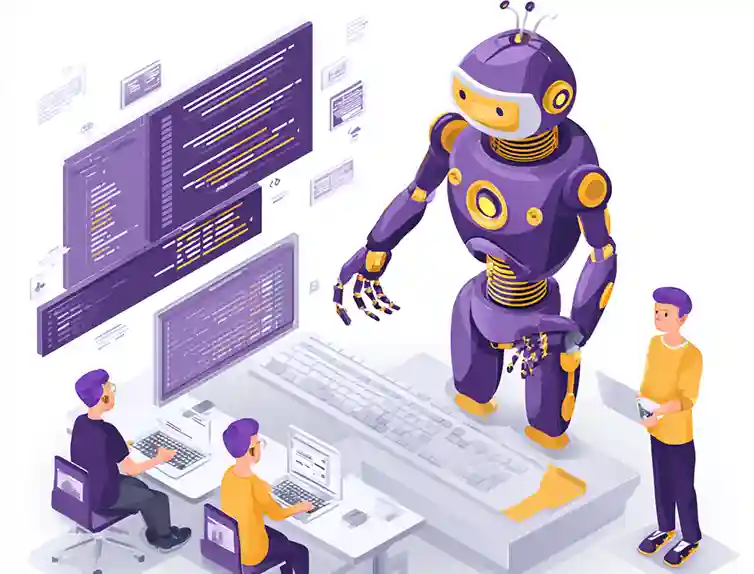Once experimental, AI‑First DevOps is now the default foundation for modern software delivery. AI‑powered tooling has moved beyond pilot projects to the heart of everyday DevOps workflows. It powers observability, testing, deployment, and security which are all seamlessly woven into CI/CD pipelines.
Why the Shift to AI‑First Now?
-
Embedded intelligence in toolchains: Products like Dynatrace now leverage proprietary AI for anomaly detection, root‑cause analysis, predictive scaling, and even auto‑remediation across cloud-native environments.
-
Software delivery as a data‑driven process: AI enables predictive analytics, self‑healing pipelines, and dynamic orchestration at scale, reducing manual toil.
-
Unified DevOps and MLOps pipelines: Tools like JFrog ML blur lines between packaging, security, and ML model management, treating models as first‑class artifacts alongside code and containers.
Key Pillars of AI‑First DevOps
⚙️ Unified Artifact Lifecycle
Code, containers, IaC definitions and ML models are all versioned, scanned, signed, and promoted together creating consistency, traceability, and governance across the entire delivery chain.
🤖 Smart Test Orchestration
AI‑driven tools prioritize test suites, detect likely regressions before code ship, and suggest auto-remediation paths. This slashes QA cycles while improving quality and release velocity.
🧪 Observability Powered by AI
Modern monitoring platforms ingest telemetry and logs, automatically spotting performance degradations, anomalous behaviors, or inference drift in ML workloads before alerts fire. Predictive analytics enables intelligent scaling and preemptive mitigation.
🔐 DevSecOps with AI
Security is woven throughout delivery pipelines. AI automates vulnerability scanning, anomaly detection, compliance checks, and policy enforcement. Governance baked into CD pipelines ensures traceability and audit readiness.
🧱 DevContentOps and AI-First CMS Workflows
As content becomes a dynamic input into AI-driven experiences, from chatbots to generative search, the boundaries between content management and software delivery are blurring. DevContentOps, the practice of uniting content teams and developers through shared tooling and workflows, is critical in an AI‑First DevOps world.
Modern AI-native CMS platforms integrate seamlessly with Git-based workflows, CI/CD pipelines, and headless delivery architectures, enabling teams to treat content as code. These platforms also support AI-assisted authoring, structured data generation, and semantic enrichment, making content not just publishable, but also machine-readable and retrainable. In this new paradigm, content and code deploy together, tested together, and continuously optimized as part of the same intelligent delivery pipeline.
Emerging Technologies & Research Trends
-
LLM‑driven frameworks: Research efforts like LADs (Leveraging LLMs for AI‑Driven DevOps) showcase agentic systems that analyze infrastructure state, generate IaC, learn from failures, and iteratively optimize cloud configurations.
-
Autonomous Infrastructure Agents: New studies are investigating AI agents that interact with cloud SDKs, CLIs, and dev portals to self-manage deployments, scaling, and recovery tasks without explicit human scripting.
-
ModelOps evolution: Beyond MLOps, ModelOps extends AI lifecycle management by enforcing auditability, KPIs, retraining policies, and compliance across diverse ML models in enterprise settings.
Best Practices for Implementing AI‑First DevOps
-
Start with high‑impact, low‑risk automation: Introduce AI tools for anomaly detection or test optimization where data hygiene is strong and risk is low.
-
Treat ML models as first-class artifacts: Version-control models alongside code, embed them in CI/CD workflows, and enforce traceability through the entire pipeline.
-
Invest in explainable AI and GitOps validation: Ensure AI-generated outputs (e.g., IaC, test code) are versioned, validated, and traceable before deployment.
-
Embed security early via DevSecOps: Apply AI-based scanning, governance, and security policy-as-code from code commit through production delivery.
-
Adopt platform engineering: Build developer platforms that abstract complexity and that automate provisioning, scaling, and testing with embedded AI, so engineers can focus on features and resilience.
- Leverage Git-based AI CMS solutions: Adopt a Git-based, AI-enabled CMS to align content workflows with DevOps pipelines and benefit from its advanced version control, branch-based collaboration, automated testing, and seamless deployment of both code and content.
Looking Ahead: The Road to Intelligence Engines
We’re transitioning from software factories to intelligence engines: systems that continuously learn, adapt, and improve from operation data. In that future, DevOps engineers won't just automate code delivery, they'll also lead an ongoing, adaptive intelligence loop enabling faster innovation and smarter systems.
Organizations embracing AI‑First DevOps with unified pipelines, observability, governance, and model integration will shape the next decade of digital transformation. If DevOps was about speed before, AI‑First DevOps is about speed plus intelligence.
To thrive, teams must adopt principled practices: treat models as artifacts, automate with explainability and validation, embed security as code, and lean into smart platforms. Those who build with AI at the core will win not only speed, but strategic agility and insight.

 Tom Jackson
Tom Jackson




